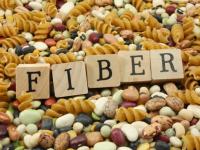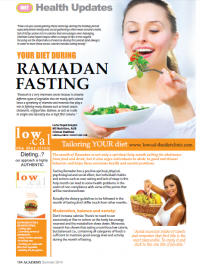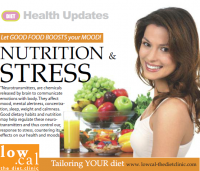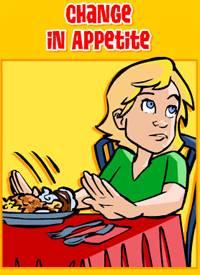Foods that boost energy and mood
PDF :
Foods that boosts Energy and mood
“One of the best ways to fight fatigue is with a diet packed with energy-boosting foods.”
“Studies have been examining the effects of several foods and their nutrients on how our brain processes signals related to mood, hunger, sleep and stress. Profound evidence found that what you eat can greatly affect your energy and mood.”
You are in a bad mood? Feeling lethargic and lazy? Having trouble concentrating and focusing on your tasks? Well, your diet could be the reason. Numerous studies have been examining the effects of several foods and their nutrients on how our brain processes signals related to mood, hunger, sleep and stress. Profound evidence found that what you eat can greatly affect your energy and mood. Fatigue is frustrating, especially when it comes to times of exams or when you are overloaded with work, since the last thing you want to experience is a disrupted emotional and physical well being. SOLUTION? Fortunately, one of the best ways to fight fatigue is with a diet packed with energy- boosting foods. Let us guide you through.
Choose smart (Carbohydrates)
Carbohydrates are the enemy for many individuals. Nevertheless, carbohydrates are important for boosting energy and mood. They are the body's ideal source of energy, and they raise levels of serotonin, a brain chemical responsible for making you feel good. However, the main issue is to choose smart. The key is to avoid refined carbohydrates (such as white rice, white bread and pasta, and sweets) which cause a rise in blood sugar, making you feel exhausted and irritable. Opt for whole grains like whole-wheat bread, brown rice, and cereals. Your body absorbs whole grains more slowly, keeping your blood sugar and energy levels steady.
Nuts about nuts (Magnesium)
All kinds of nuts will give you energy but some types do have additional benefits. Some of the best types of nuts include cashews, pecans, walnut, almonds, peanuts, and hazelnuts. They are rich in protein and magnesium, a mineral that plays a vital role in production and transport of energy. People who have low magnesium levels often experience feelings of fatigue and tiredness. Good sources of magnesium include high fiber foods such as whole grains, beans, green leafy vegetables and fruits (such as bananas, avocados and dried fruits). So the next time you are feeling fatigued, choose nuts to boost energy. But beware; nuts are easy to overeat so portion control is important since nuts are high in calories. A handful of mixed nuts has around 170 Cal. 14 almonds have around 98 Cal, 20 peanuts have around 90 Cal, 12 cashew nuts have around 90 Cal, 4 whole walnuts have around 100 Cal, 10 pecan halves have around 98 Cal, and 10 hazelnut halves have around 88 Cal.
Lean Protein
(Tyrosine, Vit B12) Lean meat, chicken, eggs, fish and turkey are sources of protein that contain the amino acid tyrosine. Tyrosine increases levels of two brain chemicals, dopamine and norepinephrine, that have shown to help elevate your mood make you feel more attentive and focused. In addition, protein takes longer than carbohydrates to be digested in the body,
providing a longer-lasting energy source. Meats also supply a source of vitamin B12, which may help ease sleep problems and depression.
Fatty fish (Omega 3 fatty acids)
Fatty fish, such as salmon, sardines and tuna are rich in omega-3 fatty acids which are known to have a protective effect against cardiovascular diseases. However, the role of omega 3 fatty acids does not just stop here. Studies have shown that omega 3 fatty acids can help ease depression by increasing the level of the feel-good chemicals serotonin and dopamine, enhance memory, and improve mental performance. People who are deficient in the fatty acids may experience poor
memory, mood swings, depression and fatigue. Other sources of omega-3 include nuts and dark green leafy vegetables. The American Heart Association recommends eating at least two servings of fish a week. Each serving is about 100 g of cooked fish.
Green Leafy Vegetables (Folate)
Folate is another nutrient that may ease depression. Rich sources of folate inclue green leafy vegetables (such as spinach, broccoli, and romaine lettuce), legumes, nuts, and citrus fruits. Color you plate for an additional emotional lift.
Fiber
Foods high in fiber take a longer time to digest, providing you with a slower and stable supply of energy throughout the day. Fiber rich foods include beans, fruits, vegetables, and whole grains.
Water
Staying hydrated helps you avoid getting exhausted. Some studies even suggest that mild dehydration can slow metabolism and drain your energy. The solution is clear. Stay hydrated. Aim to drink a minimum of 8 cups of water throughout the day. HINT: Try to distribute your 8 cups of water throughout the day with your three main meals and two snacks, i.e.2 cups with breakfast, 1 cup with each snack, 2 cups at lunch time, and 2 cups at dinner time.
Caffeine
Caffeine helps you feel energized and alert. Found in coffee, tea, chocolate, sodas, energy drinks, and some medications, caffeine gives you that instantly recognizable wake-up feeling though the effects are short term lived. However, drinking too much caffeinated beverages can make you nervous and uncomfortable. Three to four cups of coffee a day are considered safe. Keep in mind that you need to drink plenty of water to avoid dehydration.
Eat Breakfast to Fuel Your Brain
A major problem most individuals facetoday is skipping breakfast. Studies have found that eating breakfast enhances short-term memory and concentration. Students who eat breakfast tend to perform significantly better than those who skip their breakfast. Try eggs, low fat dairy products, and whole grain bread with plenty of vegetables as an energy boosting breakfast. Consume Frequent Meals Another way to keep your energy and mood steady is to consume small, frequent meals and snacks every three to four hours, rather than a few large meals. Studies have shown that consuming small frequent meals prevents fatigue by reducing hunger and cravings and by preventing fluctuations in blood glucose keeping your energy levels stable. A perfect meal/snack combines both complex carbohydrates and lean protein. Some healthy options include low fat cheese on whole-grain crackers, half a turkey sandwich with salad, or wholegrain cereal with skimmed milk.
Dark Chocolate
Great news for chocoholics! Studies have shown that a small amount of dark chocolate can improve cognitive function and enhance your mood due to several chemical compounds found in it. Chocolate contains phenylethylamine (PEA), the same chemical your brain produces when you are in love. PEA also encourages your brain to release endorphins, making you feel joyful. Chocolate contains “theobromine”, a natural stimulant & molecular cousin of caffeine. Dark chocolate contains caffeine as well; around 27 mg of caffeine/40 g, however, much less than coffee does (200mg of caffeine/mug). Dark chocolate is also rich in powerful antioxidants and contains several natural stimulants which can enhance focus and energy. But don’t get too excited. Always keep in mind that this is not a license to binge on chocolate. You can enjoy about 25 g of chocolate, especially if dark, a few times per week, or you can simply add low fat cocoa powder to your fat free milk for an enhancing mood effect.
Healthy Diet
If your diet lacks essential nutrients, it can decrease your ability to focus and concentrate. Eating excessively or too little can also hinder your ability to concentrate. A heavy meal makes you feel sluggish, that is why you feel the need to lie down after a big meal, while consuming too few calories can result in distracting hunger episodes. Solution: Aim for a well-balanced diet packed with a wide variety of healthy and nutritious foods. Avoid getting hungry to prevent any
drop in blood sugar which makes you feel lethargic. Get disciplined in the timing of your meals. Respect the time of breakfast, lunch, dinner and the 2 snacks. Vitamins, Minerals, and Supplements Several supplements claim to boost energy and overall health. Although several studies on the boosting power of supplements like vitamins B, C, E, betacarotene, and magnesium are promising, a supplement is only useful to people who are deficient in these nutrients. So always check withyour doctor before taking any supplements.
Exercise
Regular exercise is an excellent way to boost your mood & to get in shape. When you exercise, your body releases chemicals called “endorphins” triggering a positive feeling in the body reducing stress & anxiety. Any form of physical activity can be energizing. Try a single 30-minute walk, crank up your favorite CD and shake your hips, try to go with a friend to yoga or a Pilate’s class. The important thing is that you engage in activities that you enjoy and not in activities that seem like a burden for you. If you're more active and if you engage in more intense physical activity, you'll benefit even more. So the next time you are feeling down, move it! Exercise is a free medicine after all! Energy Supplements Many energy supplements claim to boost energy. Famous examples include kola nut, green tea extract, and guarana supplements. They may provide you with a short-term boost, but the effect is not much different than drinking coffee, since these energy supplements contain caffeine or similar compounds.
Sleep and relaxation
In addition to eating a well-balanced diet, researchers also advise getting a good night's sleep and meditating for clear thinking. Insomnia increases your risk for depression and stress. With adequate sleep, you'll be able to perform effectively and efficiently at school, university or work. You need around eight hours of quality sleep to get the most from your energy levels, not
more and not less since sleeping for very long hours can make you feel as lethargic as when you don’t get enough sleep. Furthermore, when you are under stress and sleep deprived, this doesn't only mess with your brain; it actually messes with your waistline! Upon anxiety, a stress-related hormone cortisol increases making you crave fatty, sugar-packed foods and causing all these additional calories to build up around your tummy sadly!
Taking breaks
Multitasking can be very hectic and exhausting. Taking a short break, of about 10 minutes, boosts your energy, helps you fight fatigue and helps you get more things done during the course of the day. In one study conducted at Louisiana State University, researchers evaluated three different work schedules for workers. The schedule that allowed for brief and frequent breaks was best in terms of fighting fatigue and increasing productivity and performance.
















